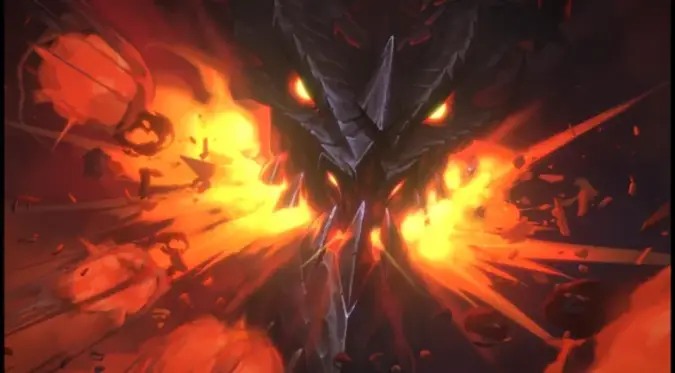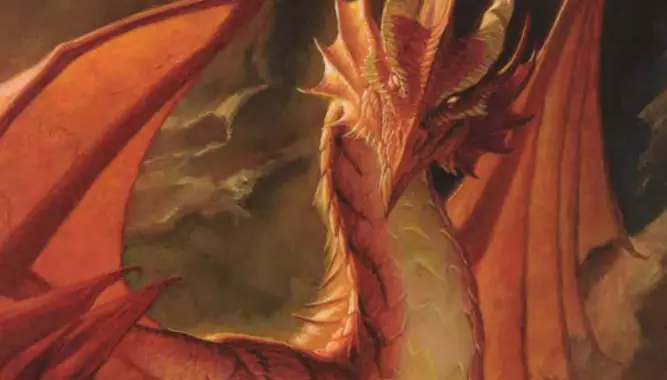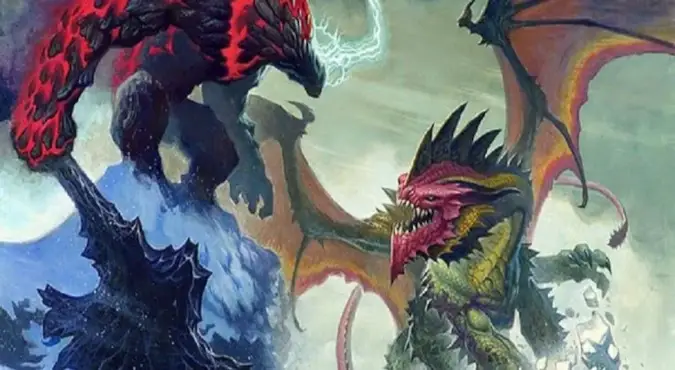How DMs can handle unpredictable players and unexpected events in their D&D game

I haven’t been running as many TTRPG games lately as I’m used to, so when I got to run our latest D&D Spectacular, I very deliberately went into it throwing everything I possibly could at the players. Callbacks to the first game we ever played, lots of references to each character’s big mysteries, the works. And in the middle of this elaborately planned out story that gathered all the threads I’ve been laying for a little over two years, one of my players — Mitch, it was Mitch — decided to ask if the group could make friends with the literal God of Destruction. A being who throws their scales into reality and causes volcanic eruptions and giant freaking dragons to be born.
When you’re running a game and the players come up with something you didn’t expect, you can shoot it down. Sometimes you even should — that one player who is obsessed with trying to seduce everything with his high charisma is not always going to be able to do so, for example. But when a player — again, it was Mitch, it’s always Mitch — comes up with an off the wall idea, really ask yourself if you need to stop them from trying it. Often, the answer is no, you don’t — it is in fact a real aid to your game to let the players derail you, or explore an idea you had no idea they’d even think about trying.
Like, say, chatting up Verth, the Eater of Worlds, the Destroyer, the Dragon of Annihilation, and trying to get said literal God of Destruction to be friends.

Running an RPG is a group exercise
Running any TTRPG is a balancing act. In a very real way, the DM is the narrator — they must play the role of every single character who isn’t one of the player characters, and describe what they see, hear, and smell. And when they decide on a course of action it’s the DM who plays the part of the reaction. Ultimately, though, without the players the DM would just be writing a story — a fine pursuit, but not a RPG campaign.
So while you’re doing all that stuff above — preparing maps and designing encounters for your players, making sure you have a plot ready to go (whether it’s a pre-made module or your own homebrew), making sure everyone gets to have the focus from time to time — it’s important to remember that the whole point is for your players to get to do stuff. Even stuff you didn’t expect.
Yes, you had an adventure planned out, but then the party remembers they can cast Plane Shift and just sidestep the whole thing. Maybe you didn’t see that coming and didn’t have a plan for them jumping straight to their enemy’s lair like that, but letting players do things — even unexpected things — and reacting to those things is part of what you, as the DM, are there to do.
A TTRPG game isn’t entirely the DM’s story: it’s an exercise in collaborative storytelling. And sometimes that means embracing the unexpected things your players do.

Let the players tell the story with you
One of my favorite memories of playing old school D&D back in the 80’s is the Forest of Death. My friend Scott was running a game for myself and my cousin Billy, and we played brothers who were clearly lifted from movies and TV we’d watched. I was basically playing Madmartigan from Willow meets the poster for Fire and Ice, while my cousin was likely playing a Masters of the Universe character with the serial numbers filed off. After a series of inexplicable (because I don’t remember them) events, we arrived at the Forest of Death.
Scott spent a lot of time describing the ambiance of this forest, which was full of undead monsters, and nothing living could survive. He made that point repeatedly, about how even the songbirds were zombies, about the skeletal deer and undead trees that oozed pitch. Hearing this, I piped up.
The trees ooze pitch?
Absolutely they do.
And they’re all dead? Everything in the forest is dead? There’s nothing alive in there at all?
Nothing. At the heart of the forest lies the Lich, but to face him, you’ll have to…
Now, I knew about pitch — we used it on the farm, and I knew it was crazy flammable. So before Scott even finished talking, I said the following words:
I set an arrow on fire and shoot it into the dead, pitch oozing trees.
Now, Scott was the DM. Scott could absolutely have told me it wouldn’t work. He could have said it was too far to really get a flaming arrow accurately into a tree, or demanded I explain how I was making flaming arrows in the first place, or any number of other things. He could have stuck with his original plan and forced us to walk through a forest of dead things that would be trying to kill us all the way to the Lich’s fortress. He could have done that.
Instead, he let me roll with my idea, let it work, and in the process created a memory that’s stuck with me since the late 80’s. That’s really your job when running a game — helping your players to come up with cool memories. You don’t have to always let them completely succeed — we still ended up fighting a lot of undead, and a few of them were on fire now, which wasn’t great — but the memory of seeing that entire forest get burned to the ground and the bulk of the Lich’s undead army getting wiped out still brings a smile to my face all these years later.
So when your players surprise you and derail your plans, remember that you’re here to tell a story together. Let your players tell the story with you.
Let them try whatever interesting ideas they come up with, and let those things have at least a chance of working, even if you never in a million years would have seen that coming. It can give you whole new ideas, it can remind you that in the handout you wrote for the campaign you specifically said that Verth was a neutral deity, not an evil one. It can let you roleplay a giant monster god as a giant Kenku repeating everything Mitch says back to him so he knows how it feels. Some of the best ideas in your campaign will come from your players doing things you didn’t anticipate.
Originally posted September 14, 2021. Updated June 24, 2022.
Please consider supporting our Patreon!
Join the Discussion
Blizzard Watch is a safe space for all readers. By leaving comments on this site you agree to follow our commenting and community guidelines.
 @MatthewWRossi
@MatthewWRossi



